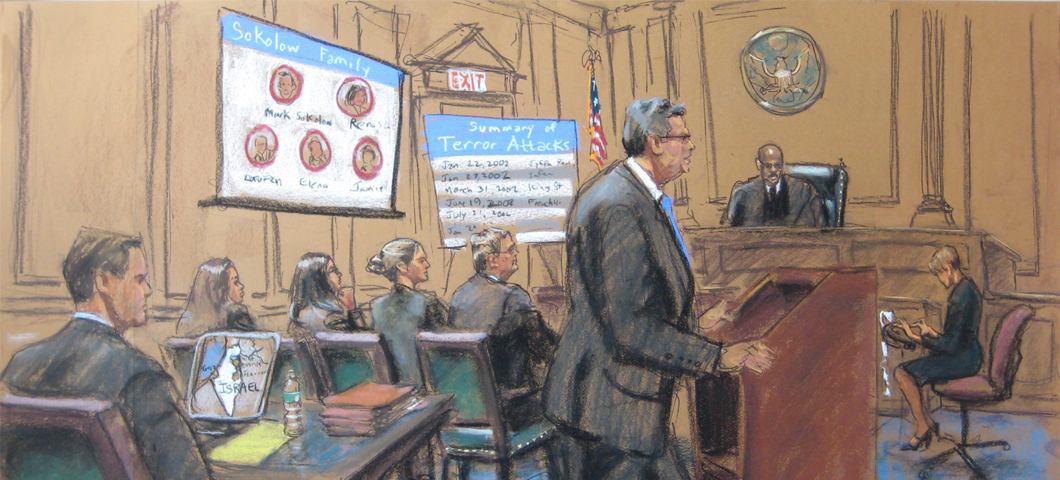Effective Strategies for Designing Winning Trial Presentations in Court
Enhancing Your Legal Approach With Professional Trial Presentations
In today's lawful landscape, the significance of expert trial presentations can not be overstated. By changing thick lawful concepts into engaging narratives, practitioners can boost juror understanding and retention.
Relevance of Trial Presentations
Trial presentations offer as a crucial component in the lawful process, efficiently bridging the void in between complicated legal arguments and juror understanding. The capability to boil down detailed lawful principles into obtainable stories is necessary for jurors, who need to make educated choices based on the proof provided. A well-crafted presentation not only makes clear the situation but additionally improves the persuasiveness of the debate, inevitably influencing the jury's understanding.
In an era where focus spans are restricted, the significance of engaging visuals and clear interaction can not be overstated. Test presentations offer to capture jurors' rate of interest and maintain their emphasis, allowing for a much deeper understanding of the facts and legal concerns handy. Moreover, they provide an organized structure that organizes the instance, helping with sensible flow and comprehensibility.

Trick Components of Effective Presentations
A reliable presentation in a court establishing hinges on numerous key elements that jointly enhance its effect. Foremost amongst these is quality of message. Attorneys need to boil down complex legal disagreements into concise, conveniently absorbable points to make sure jurors realize the core issues. Enhancing this clarity is making use of a compelling narrative structure. An efficient discussion, with a clear start, center, and end, guides the audience with the situation, making it extra relatable and memorable.
Aesthetic aids play a critical role as well, as they can considerably reinforce key messages. Effective use displays, graphes, and layouts can make clear detailed information and highlight vital truths. Additionally, the presenter's delivery style is essential; certain, appealing communication fosters integrity and preserves jurors' attention.
Last but not least, recognizing the target market is critical. Tailoring the discussion to the jurors' backgrounds and values can cultivate a connection that boosts understanding to the disagreement. In summary, clearness, narrative framework, visual aids, shipment style, and audience recognition are essential to crafting a reliable court discussion that reverberates with jurors and supports the overarching legal strategy.
Modern Technology in Test Presentations
Modern courts increasingly integrate modern technology to boost test discussions, building on the fundamental elements of efficient interaction established through clear messaging and appealing stories. The consolidation of audio-visual aids, such discover this info here as high-definition projectors and interactive display screens, enables lawful groups to present proof in a much more engaging manner. This innovation not just captures the jury's focus but additionally facilitates a much better understanding of intricate information.

Digital devices, including presentation software application and digital display monitoring systems, streamline the organization and retrieval of evidence (trial presentations). Attorneys can promptly reference records, images, and videos, guaranteeing that important you can look here info is conveniently accessible during the trial. Additionally, the use of animations and simulations can vividly illustrate essential ideas, making them much easier for jurors to comprehend
In addition, court room modern technology advertises partnership among attorneys, allowing real-time adjustments to presentations based upon court reactions or unforeseen advancements. The capability to adapt on the fly is crucial in keeping involvement and strengthening disagreements. As innovation continues to evolve, its duty in test presentations will unquestionably expand, supplying cutting-edge means to interact efficiently and persuasively in the search of justice.
Narration Techniques for Influence
Efficient storytelling techniques are critical in providing impactful test discussions, as they transform complicated legal debates right into relatable narratives. A well-crafted tale captivates the target market, making it simpler for jurors to recognize and remember bottom lines.
To develop a compelling story, attorneys need to focus on developing a clear structure with a start, middle, and end. The start should introduce the instance context and its importance, while the center elaborates on the core problems, weaving forthcoming and witness testimonies that support the disagreement. Effectively, the ending should strengthen the designated message, driving home the desired result.
Additionally, including emotional components can substantially improve the story's influence. By humanizing the instance, attorneys can evoke compassion, enabling jurors to link personally with the truths provided. Using vivid imagery and anecdotes can also aid in illustrating complicated themes, making them much more substantial and remarkable.

Tips for Implementation in Court
Executing storytelling methods in court calls for mindful preparation and implementation to make sure that the story reverberates with jurors. Begin by determining the core message of your instance and straightening it with the psychological and accurate aspects that will engage the jury. Develop a clear and engaging narrative arc that includes an intro, a growth of dispute, and a resolution.
Use visual aids to boost narration; displays, timelines, and multimedia discussions can assist show complex principles and keep juror this post rate of interest. Practice your delivery, guaranteeing that body language, tone, and pacing follow the psychological weight of your story.

Final Thought
In final thought, professional test presentations play an essential function in boosting legal methods by properly connecting complex arguments to jurors. The combination of aesthetic help, clear narratives, and emotional narration promotes juror engagement and understanding.